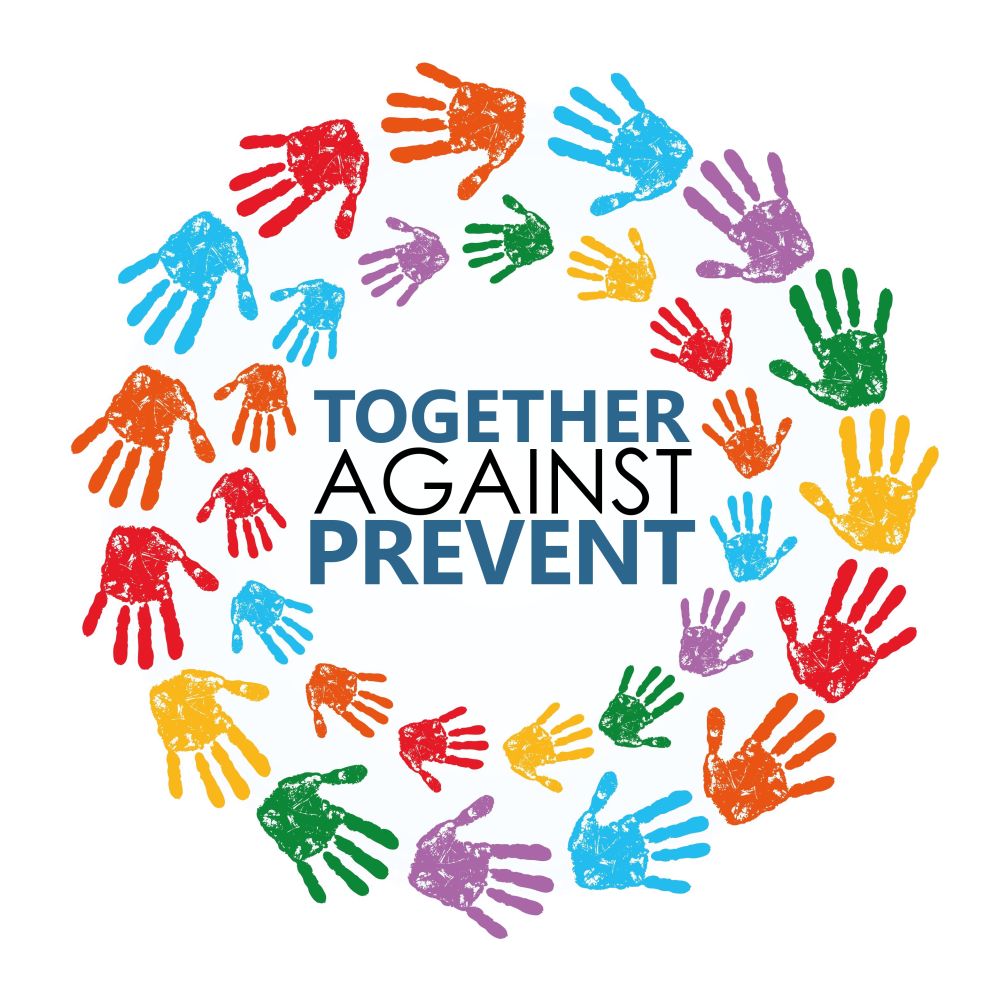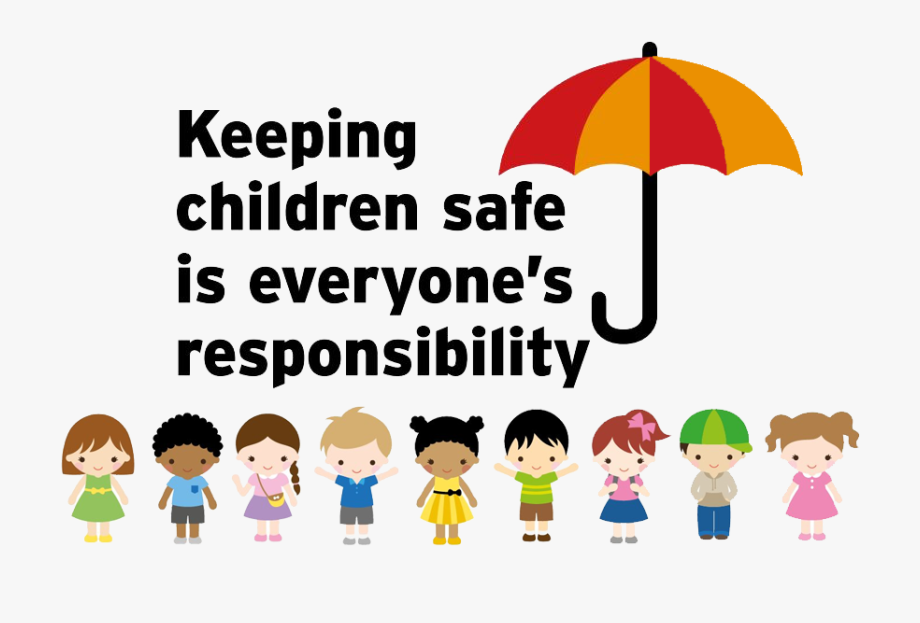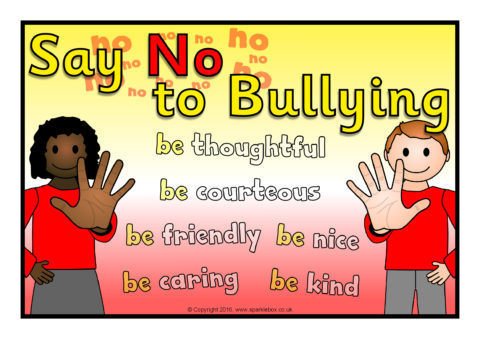Safeguarding at St Paul's
Our Safeguarding Team
At St. Paul's, we have 1 Designated Safeguarding Lead (DSL) and 3 Deputy Designated Safeguarding Leads (DDSLs) who are responsible for ensuring we adhere to the safeguarding duties set out for schools in order to keep children safe from maltreatment and harm. ALL staff are responsible for the safeguarding of the children in our care. Our DSL and DDSLs are:
|
Lead DSL Mrs H WIlliams Principal |
Deputy DSL (DDSL) Mrs C King Pastoral Manager |
Deputy DSL (DDSL) Mrs S Barton Assistant Principal |
Our School Standards Committee member with responsibility for safeguarding is Mrs S Rossi.
DSLs and DDSLs are available on the gates before and after school. They can also be contacted:
- telephone: 0121 464 1546
- email: safeguarding@spa-lumenchristi.org.uk (this is a confidential email account monitored only by safeguarding leads).
PLEASE GO TO POLICIES PAGE FOR KEY SAFEGUARDING POLICIES
St. Paul's Catholic Primary School is committed to safeguarding and promoting the welfare of children and expects all staff and volunteers to share this commitment. The governing body has a duty of care to pupils and all members of the school community. We ensure there are consistent and effective safeguarding procedures in place to support families, children and staff at school.
Worried about a child?
If the child is in imminent danger, call 999
The school lead for safeguarding is Mrs Williams (Principal).
If you are concerned about the safety of a child, please contact our school Safeguarding Team (DSLs) using the details below:
If your concern is URGENT, please contact Birmingham Children's Trust directly by calling CASS (Children's Advice Support Service) on (0121) 303 1888
Other helpful numbers for concerns about a child's safety:
Childline - 0800 11 11
NSPCC Helpline - 0808 800 5000
LADO (Local Area Designated Officer): 0121 464 2612
Concerns should be brought to a DSL, if you have concerns about a DSL please contact the Lumen Christi CEO Rebecca Nash: r.nash@lumenchristi.org.uk
Alternatively, contact Hollie Parrish for the attention of the Chair of the Board of Directors: h.parrish@lumenchristi.org.uk
The safety and welfare of children is everyone's business. You could be a neighbour, friend, parent, relative, childminder, teacher or doctor - or working for any organisation which has contact with children and young people.
Most children enjoy generally happy childhood experiences within their own family. Unfortunately for some, this is not the case. During difficult family times, everyone who knows the child must do the best they can to protect them from future harm.
This section is about assisting parents or guardians in safeguarding and promoting the welfare of children and young people. We hope you will find the information useful.
If you would like to find out more about the Lumen Christi approach to Safeguarding and please visit the website page here.
-
Safeguarding legislation and government guidance says that safeguarding means:
- Protecting children from maltreatment
- Preventing impairment of children’s health or development
- Ensuring that children are growing up in circumstances consistent with the provision of safe and effective care
- Taking action to enable all children and young people to have the best outcome
Safeguarding includes child protection, health care plans, health and safety, site security, safety on school trips, anti-bullying work and so much more.
The school adheres to the latest versions of the following three DFE safeguarding documents:
- Keeping Children Safe in Education
- Working Together to Safeguard Children
- The Prevent Duty 2015
Operation Encompass


We are an OPERATION ENCOMPASS SCHOOL. Click here to go to the Operation Encompass website.
Operation Encompass is a police and education early information sharing partnership enabling schools to offer immediate support for children and young people experiencing domestic abuse. Information is shared by the police with a school's trained Key Adult (DSL or DDSL) prior to the start of the next school day after officers have attended a domestic abuse incident thus enabling appropriate support to be given, dependent upon the needs and wishes of the child.
Children experiencing domestic abuse are negatively impacted by this exposure; domestic abuse has been identified as an Adverse Childhood Experience and can lead to emotional, physical and psychological harm. Operation Encompass aims to mitigate this harm by enabling immediate support, making a child's day better and giving them a better tomorrow.
Operation Encompass believes that children are victims of domestic abuse in their own right and should be acknowledged as such.
The principles of Operation Encompass are very simple and easy to adopt. Within every school a trained Key Adult is appointed – the Key Adult receives information about abusive incidents directly from the police. The Key Adult will be notified prior to the start of the next school day that the police have attended an incident of domestic abuse to which a child has been exposed. This timely knowledge enables a plan for appropriate support to be made for that child so that all interactions, from when the child first arrives at the school gates, are of a positive nature.
The Key Adult at St. Paul's is Mrs Williams (Principal/Lead DSL).
.The Prevent Duty


The Prevent Duty aims to prevent young people from being radicalised by, for example, far right extremists or religious extremists.
In school we have a duty to care for the children and take note of any child who is at risk of radicalisation, regardless of their background. We also have to take steps to help prevent children being exposed to extremist ideas. Our overriding concern is that children feel safe and also express tolerance towards all cultures and religions, even when personal views may be different.
The DSLs will make referrals to the Channel programme where there are any concerns around radicalisation.
Channel is a programme which focuses on providing support at an early stage to people who are identified as being vulnerable to being drawn into terrorism.
The programme uses a multi-agency approach to protect vulnerable people by:
- identifying individuals at risk
- assessing the nature and extent of that risk
- developing the most appropriate support plan for the individuals concerned
-
Keeping Children and Young People Safe
Clubs & Activities for Children & Young People
There are many clubs and organised activities for children. Taking part in extra-curricular activities is brilliant for children as it helps build confidence, self-esteem, resilience, friendships but as a parent, you will want to know that any activity your child is involved with is safe.
It is important for you as a parent to feel happy and confident about the arrangements you make for your child.
To find out what is available in your area, talk to other parents who have children of the same age as your child or a little older – and talk to the children themselves.
Your first choice may be made by your child showing an interest in a particular activity or saying that he or she wants to join a particular group – perhaps he or she has a friend who is already a member. If possible, talk to the parents of children who are already involved. Are they happy about the organisation? Are the children happy about the activities?
If the activities are held on school premises, ask whether they are run by school staff and whether they are sponsored by the school. If the activities are held on council premises, church premises, etc. ask who organises them.
If possible, go and watch the group in action
- Do the activities seem to be suitable for the children taking part?
- Do you think the activities would be suitable for your child?
- Does the group seem well organised?
- Do there seem to be enough adults present for the number of children?
- Do the premises and equipment look safe?
- Do the activities seem to be carried out safely?
- Do the children seem to be enjoying themselves?
If you and your child are still interested, ask about these points
- How are the organisers recruited?
- How are they trained and what experience do they have?
- Do they have any qualifications?
- Are any checks carried out to make sure that they are suitable people to work with children?
- Is the group insured?
- Are there any rules that staff and helpers have to follow?
Now talk to your child - are you both happy about this group? Listen carefully to your child
If your child joins a club or group, it is important to keep listening to what he or she has to say about it. If he or she becomes less willing to attend, listen carefully to what he or she is saying. Of course children do outgrow particular activities and lose interest in particular groups, but there may also be something else that your child is not happy about.
A child who has vague concerns may feel silly talking about them. Listen carefully and take what he or she says seriously. Are you still happy about the organisation, the activities and the organisers?
Remember that the final decision always lies with you as a parent. No guidance can guarantee your child's total safety from all dangers.
Picking the right activities for your child is all about listening
- Listen to your child: What does he or she want to do?
- Listen to other children: What do they say about local clubs and activities?
- Listen to other parents: Do they think that local clubs and activities for children are well organised?
- Listen to your own feelings: You often know when something is not right for your child even if you can't quite put your finger on why.
- Listen to your child: If something is beginning to go wrong, he or she may notice it before you do.
If you have a concern about a particular club or activity please contact 0121 303 8454.
-
Anti-bullying
- Is your child being bullied?
- Is your child bullying other children?
- Do you want to help your child stop the bullying?
In the first instance, we would like you to contact school to discuss any concerns you have around bullying so that we can support both you and your child. Please see our behaviour and anti-bullying policies under our 'policies' page. Please see some additional online resources below:
National Helplines and Websites
Parentline Plus - www.parentlineplus.org.uk
A national charity that works for and with parents
ACE - http://www.ace-ed.org.uk/
The Advisory Centre for Education is an independent advice centre for parents and carers offering a free telephone advice, a range of advice booklets, frequently asked questions, a jargon page a discussion forum and a booklet about tackling bullying
General advice line : (Mon-Fri 10am-5pm): 0808 800 5793
-
Domestic Violence
BSCB Information For Parents
If you are a parent experiencing domestic violence you may have many concerns over your children, including being:
- Worried that you will be prevented from taking your children with you if you leave a violent relationship
- Worried over contact your children may have with the abuser
- Worried that you need financial or practical support to look after your children
- Worried that your children have been traumatised by domestic violence and want extra support for them.
- Worried that your children may be abducted.
If you are affected by domestic violence, you are not alone. You can talk over these concerns, confidentially, with a number of specialist, sensitive services. Services such as Birmingham Women's Aid will listen to you, support you and give you time and space to decide what you want to do. They won't judge you because of what you say or force you to make a decision you do not want to make.
It is important to remember that the abuse you have experienced, and your children have been exposed to, is not your fault.
Listed below are some of the organisations that can support you:
Birmingham & Solihull Women's Aid (BSWA)
BSWA offers a range of services including advice, information, temporary accommodation and a counselling support service to women and children affected by domestic abuse.
The telephone helpline offers a listening ear, emotional support and practical information on BSWA services and other agencies.
If a woman decides that she no longer feels safe to remain in her home, Women's Aid can arrange for her and her children, to move to a refuge. They have refuge accommodation in Birmingham and Solihull which is accessible 24 hours a day. Refuge space can also be found elsewhere in the country if this is what a woman chooses
Helpline/ Refuge: FREEPHONE 0808 800 0028
Minicom: 0121 685 8519
Birmingham Crisis Centre
Birmingham Crisis Centre is an independent charity offering refuge to 23 women and their children fleeing abusive relationships. Trained Staff are available 24 hours a day and can be contacted through our helpline on 0121 507 0707.
Families each have access to a fully furnished bedsit with its own kitchen and bathroom . The refuge has communal facilities namely a residents lounge, laundry, children's play area and an 'outstanding' nursery provision. We provide professional counselling Support and facilitate a rolling Freedom Programme in addition to providing tailored housing related support.
Our motto is "Return to Happiness""
Birmingham Women's Advice & Information Centre (BWAIC)
Free counselling, information and support and self help groups for women.
Tel: 0121 212 1881
Ashram Reducing Domestic Violence Project
RDVP is a specialised, but not specific, service for South Asian women living with or fleeing domestic abuse Provides comprehensive support, advocacy, information and advice to empower women to live more independently.
Ashram also runs a new counselling service for children and young people
Tel: 0121 764 3817
WAITS (Women Acting in Today's Society)
Support, advocacy & befriending for all women who have experienced domestic violence at some point in their lives. There is a particular focus on black and minority ethnic women.
Tel: 0121-440 1443
National Domestic Violence Helpline 24 hour freephone
Tel: 0808 2000 247
If you are a male victim of domestic violence, contact:
Victim Support Men's Helpline
Tel: 0800 328 3623
Services available: Helpline for male victims of sexual and domestic abuse. Provides an opportunity to talk in confidence and anonymously
M.A.L.E: Mens Advice Line & Enquiries
Confidential helpline for male victims of domestic violence whether in straight, gay, bi sexual or transgender relationship
Tel: 0808 801 0327
-
Mental Health and Well-Being
We take the well-being of our whole community very seriously; it is one of our School Development Plan Priorities.
We go above and beyond at St Paul's School to look after the children's mental health and well-being.
The 5 Ways to well-being are a set of really simple actions we can all take, which have been shown to improve people’s well-being.
- Connect
- Get Active
- Be Mindful
- Keep Learning
- Give to others
Connect
Connecting with each other is a simple step in improving mental health and Well-being. Taking time out of a busy schedule to sit and talk with each other has a positive impact on how we are feeling and allows us to reconnect and express our thoughts and feelings with each other.
Ways in which this simple step could be carried out are:
- No TV/screen time for half an hour to allow talk time
- Sitting together at a table to eat dinner and talk about daily events
- Visiting family or friends
- Attending playgroups or baby classes with younger children to connect with other Mum's/Dad's or carers.
Get Active
We all know exercise is good for your body, but it can be good for your mind too.
What’s more, there are so many activities out there to choose from, there is bound to be one that you enjoy! Exercise can be a way to deal with negative thoughts and feelings. The feeling of setting a goal and achieving it – even if it’s just a jog around the block – can really improve your self-esteem, too.
Be Mindful
Noticing what is going on in our bodies and minds is an important skill for staying mentally healthy. Take time to check in with your thoughts and feelings. By paying attention to the present moment, we might enjoy things more, and even notice things we would have missed.
Keep Learning
Lifelong learning keeps our brains healthy, and the sense of achievement we get from learning something new can be great for our mood. Try something new or rediscover an old interest.
- Read a new book
- Start learning a new skill such as knitting or painting
- Take a dance class
Give to Others
Evidence shows that helping others is actually beneficial for your own mental health and well-being, too. It can help reduce stress, improve your emotional well-being and even benefit your physical health. Give to friends, classmates and your community, and help yourself at the same time
Agencies who can offer support with Mental Health in addition to your GP
Forward Thinking Birmingham is a mental health service offering support, care and treatment for all 0-25s through one organisation, making it easier for you to access the right support at the right time.








